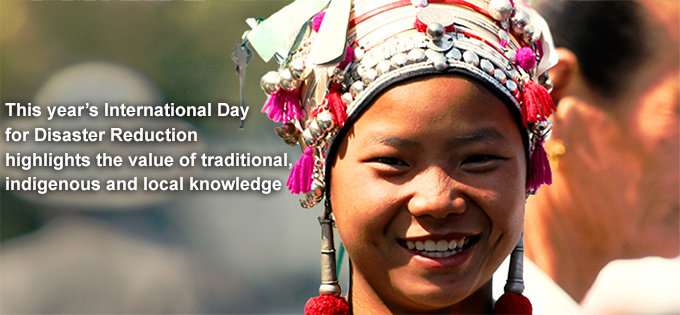Irish Aid celebrates International Disaster Reduction Day
13/10/15October 13th is International Disaster Reduction (DDR) Day, which promotes a global culture of disaster reduction, prevention and preparedness, and celebrates how people and communities are reducing their risk to disasters.

In an effort to reduce the impact of weather risks on small farmers, Irish Aid partnered with the UN World Meteorological Organisation (WMO) and the Ethiopian National Meteorological Agency (NMA), to improve the quality of weather information available for small farmers in Tigray province in northern Ethiopia.
The €174,000 project, funded by Irish Aid, was implemented over five districts in Tigray province. Its aim was to strengthen the NMA’s weather climate information services and early warning systems to rural farmers, at many levels - regional, district, village, farmer training centre and farm level. Reliable weather information was identified as a key requirement for more efficient farming, higher yields and improved food security.
The Ethiopian Department of Agriculture, Tigray Agricultural Research Institute, Mekelle University and local media, primarily radio stations collaborated in this initiative.
At the farmer training centres, farmers were given training manuals and took part in workshops where they were given rain gauges, and were trained on how to install, use and collect data from them. They also learned how to interpret weather and climate information supplied to them via text messages from the NMA.
In addition, Ethiopian Department of Agriculture agents visited farmers on site and instructed them on issues such as rainfall analysis, the length of the growing period, planting, chemicals, crop rotation and water conservation.
Farmers then had a better understanding of when to sow crops, apply fertilisers and pesticides, as well as how to harvest and collect rainwater.
Furthermore, the capacity of the NMA was enhanced through the installation of automatic weather stations in the five pilot districts, which measure atmospheric parameters and soil moisture and send it to a server at head office, where quality control and data analysis was done.
Pilot trial results indicated that some participating farmers experienced productivity increases of up to 45% on their farms.
Based on these positive results, Irish Aid is exploring a second phase partnership with the WMO and the national authorities.
Read More
Read how the World Bank is seeking to raise some $500 million to modernise weather and flood forecasting services in Africa.

